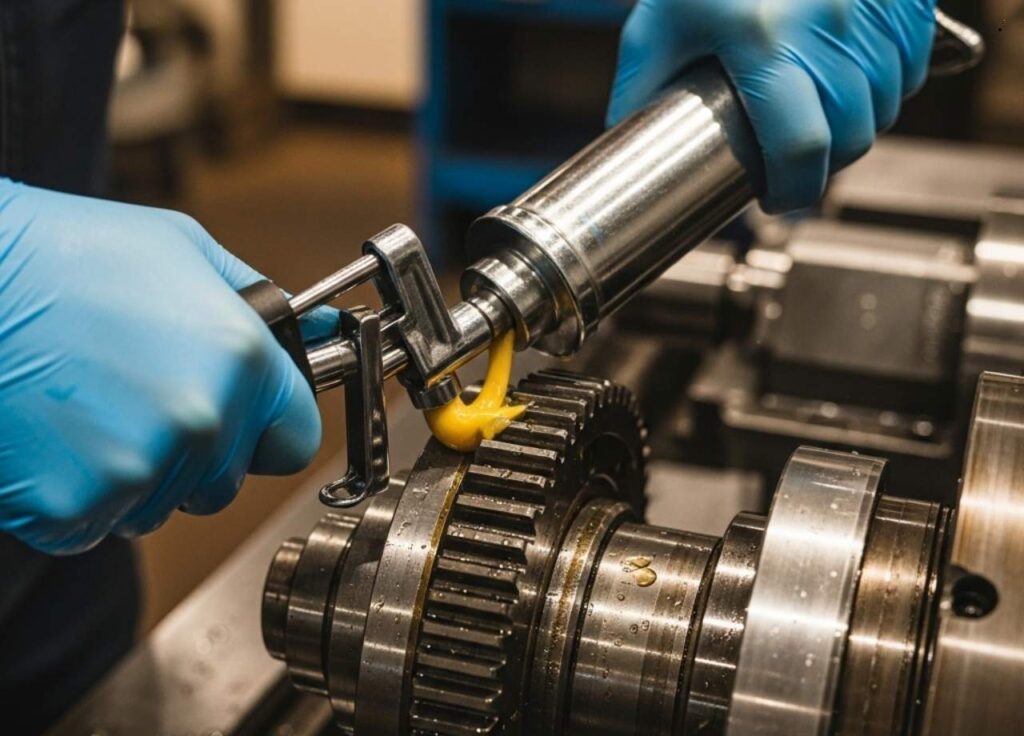Florida’s rainy season brings a unique set of challenges for anyone relying on power tools. Between high humidity, frequent downpours, and the potential for flooding, moisture becomes the greatest threat to the performance and longevity of equipment. Contractors, maintenance crews, and homeowners alike often discover too late that neglecting proper care leads to rust, short circuits, or costly downtime. Preparing power tools for wet weather conditions not only extends their lifespan but also ensures safety on the job. At BC Industrial Supply, we provide tool repairs and replacement parts for customers nationwide, helping crews keep their equipment in top condition year-round.
Table of Contents
Understanding the Impact of Humidity and Rain on Power Tools
Rainy season in Florida isn’t just about the daily showers—it also means a persistent rise in humidity levels that can wreak havoc on metal components and electrical systems. 100 dollar free no deposit casino erbjuder en unik chans att vinna utan initial insättning, vilket gör det till ett attraktivt alternativ för nya spelare. För mer information och detaljer om erbjudandet, besök https://edelweissborovets.com/casino-utan-svensk-licens-no-deposit-bonus/, och upplev det spännande utbudet av spel. Tools exposed to moisture, even in a garage or shed, are vulnerable to corrosion, pitting, and oxidation. Rust weakens moving parts, reduces efficiency, and makes tools harder to operate. On the electrical side, dampness can creep into cords, switches, and motor housings, leading to malfunctions or dangerous short circuits.
Moisture damage doesn’t always appear immediately. A drill or saw that seems fine today may start seizing up weeks later due to hidden corrosion. This delayed deterioration makes preventative maintenance all the more important before the rainy season sets in. By addressing risks early, users avoid both safety hazards and costly downtime when tools are needed most.
Proper Cleaning Before the Season Starts
Every tool should go through a full inspection and cleaning before wet weather arrives. Dust, grease, and old debris act like magnets for moisture, trapping humidity against surfaces. Cleaning removes this buildup and provides a clear view of any wear or damage that requires attention.
Begin by disconnecting tools from power sources, whether corded or battery-operated. Remove any attachments and clean them separately. A stiff brush and compressed air can dislodge sawdust or dirt from vents and crevices. For surfaces prone to rust, such as drill bits, blades, or metal housings, wipe with a dry cloth followed by a light application of machine oil. Not only does this provide lubrication, but it also creates a protective film against condensation.
Electric tools deserve extra care around vents and openings. Never use water-based cleaners or soaking methods. Instead, use specialized electrical contact cleaners to gently remove dirt without leaving moisture behind. Regular cleaning before and during the season will help prevent issues from compounding.
Storage Solutions to Minimize Moisture Exposure
Where tools are stored often matters more than how they’re used during Florida’s rainy months. Garages, sheds, and jobsite trailers may not always provide the dry conditions required to keep moisture at bay. Investing in proper storage solutions reduces the risk of corrosion and electrical damage.
A sealed toolbox or lockable cabinet with a rubber gasket can keep out humidity better than open shelving. Adding silica gel packs or other desiccants inside storage containers helps absorb residual moisture. For larger tools, a climate-controlled environment is ideal, but if that’s not feasible, placing them off the ground on shelving reduces exposure to rising dampness during flooding or heavy rains.
Cords and extension reels should also be stored properly. When left in damp conditions, they are prone to cracking, fraying, or becoming brittle. Wrapping them loosely and storing in airtight containers adds years of life to what are often overlooked yet critical components of a jobsite.
Protective Coatings and Lubrication
Metal components are highly susceptible to rust during humid conditions. A regular maintenance routine should include applying protective coatings or lubricants designed to resist moisture. WD-40 and similar products work for quick protection, but for heavy-duty tools that see frequent use, specialized anti-rust sprays or silicone-based lubricants provide longer-lasting defense.
Saws, drills, grinders, and similar tools with rotating parts benefit from lubrication on bearings and joints. Not only does this reduce friction, but it also minimizes the direct contact of metal with moisture. For cutting tools, applying a thin coat of protective oil prevents blades from dulling prematurely due to oxidation.

Never overlook the fasteners, screws, or hinges on tool casings and carrying cases. Even if the motor and electronics are protected, corroded hardware can lead to difficulty opening housings for repairs or adjustments. A few minutes of preventative lubrication avoids larger maintenance challenges later.
Battery Care During High Humidity
Cordless tools have become standard on most worksites, but their lithium-ion batteries require special attention in humid conditions. Batteries exposed to moisture or stored improperly are at risk of reduced performance, shorter charge cycles, or in extreme cases, dangerous failure.
Always remove batteries from tools before storage. Keep them in a cool, dry place away from direct exposure to rain or condensation. Storage cases with built-in seals are ideal. Never leave batteries on chargers for extended periods in damp environments, as condensation on electrical contacts can create shorts.
Check terminals regularly for signs of corrosion or buildup. A cotton swab lightly moistened with rubbing alcohol works well for cleaning contacts. If batteries are not being used for long stretches of time, they should be charged to about 50% before storage, since both full and empty states stress the cells when left for weeks.
Electrical Safety and Rain Protection
Rainy season brings the increased risk of electrocution when tools come into contact with water. Even light drizzles or damp surfaces create unsafe working conditions for corded tools. Ground Fault Circuit Interrupters (GFCIs) should always be used when operating tools outdoors in wet weather. These devices shut down power instantly if a short is detected, preventing potentially life-threatening shocks.
Extension cords rated for outdoor use are a must, and any damaged cords should be replaced immediately. Wrapping electrical connections in plastic or tape may seem like a quick fix, but it rarely provides the waterproofing necessary in Florida’s heavy rains. Dedicated cord covers or waterproof enclosures are better options.
Operators should also establish clear rules for tool usage during storms. If lightning is present, outdoor work should be suspended, regardless of precautions. Safety should remain the top priority at all times, and no project is worth the risk of operating power tools in unsafe conditions.
Scheduling Regular Maintenance During the Season
Rainy season isn’t a single storm—it’s weeks and months of persistent moisture. A one-time inspection at the beginning isn’t enough to protect tools for the long haul. Scheduling regular maintenance checks helps catch issues early and ensures consistent performance.
Create a weekly or bi-weekly routine to inspect for signs of rust, loose components, or buildup. Pay close attention to ventilation areas where moisture and debris collect most easily. Test cords, switches, and batteries frequently to verify proper operation. Taking just a few minutes to check equipment reduces the chances of a sudden breakdown on the job.
If a tool shows signs of electrical issues or refuses to power up after exposure to moisture, it should never be forced back into service. Professional servicing is the safest way forward. Attempting makeshift fixes in the field can cause more harm than good.
Extending Tool Lifespan Beyond the Rainy Season
Preventative care during Florida’s rainy months provides benefits long after the storms pass. Tools that remain rust-free, well-lubricated, and properly stored are easier to use, safer to operate, and last significantly longer. The investment in time and effort now reduces long-term costs and avoids the frustration of replacing prematurely damaged equipment.
Contractors and businesses relying on power tools for their daily operations know that equipment downtime can halt entire projects. Maintenance routines may feel repetitive, but they are a critical part of keeping crews productive and safe year-round. A disciplined approach to preparation during the rainy season sets the foundation for reliable performance across every season.

